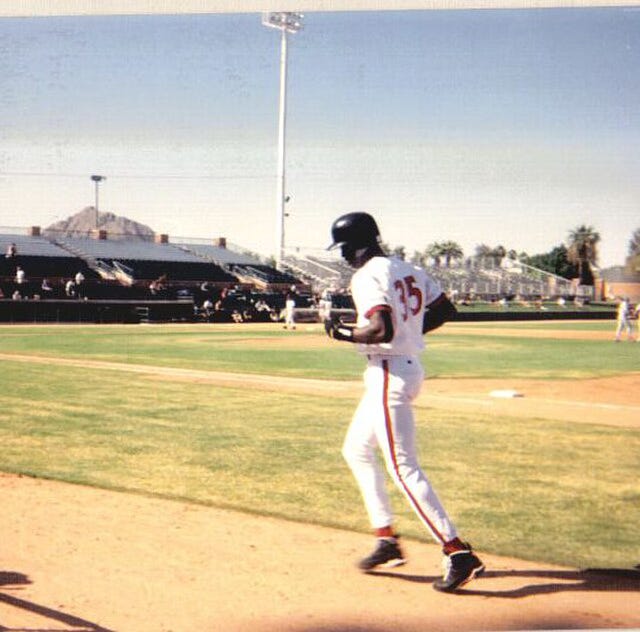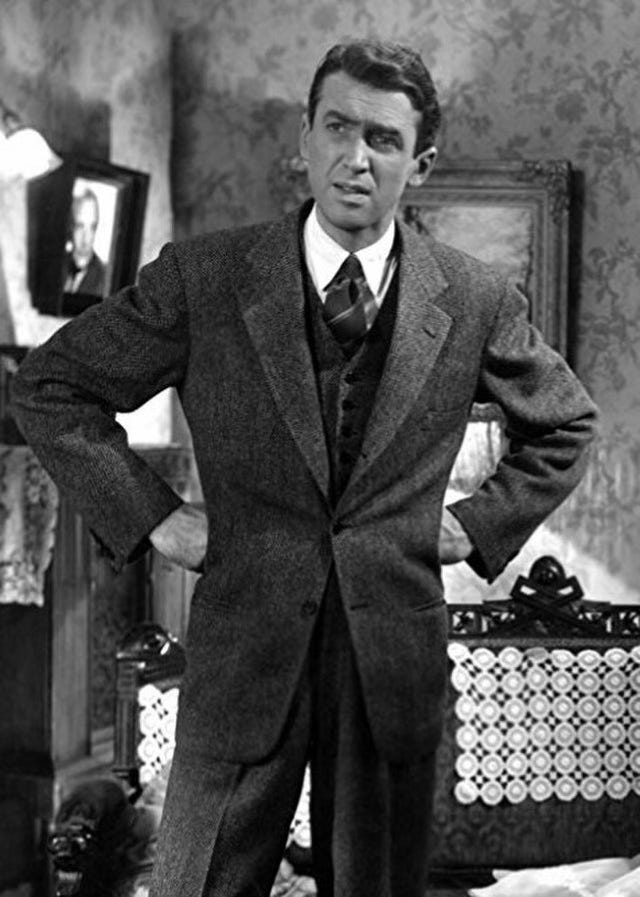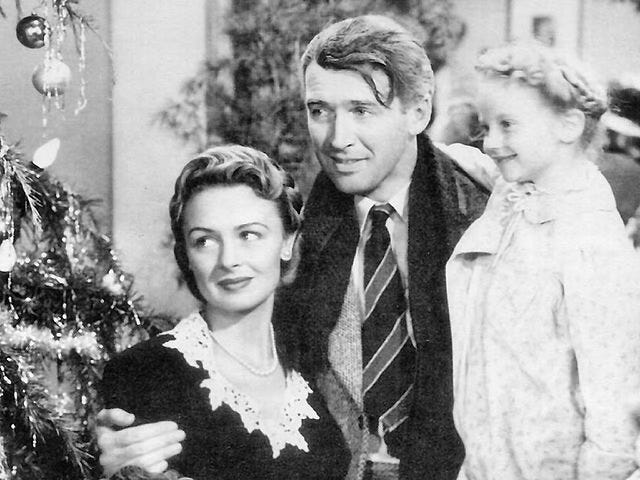I don’t remember much about kindergarten, but I’ll never forget the morning Mrs. Fiala stood before class and, newspaper in hand, announced that Michael Jordan was retiring from professional basketball.
An aspiring NBA point guard, I was devastated. Jordan was my hero. He was everyone’s hero. I couldn’t have known it then, but this wouldn’t be his last retirement, nor was it his first.
In 1993 Jordan had famously left the Chicago Bulls for a stint in minor league baseball—a startling move from the greatest basketball player of all time. Jordan claimed he was attempting to fulfill the dream of his late father, who had often encouraged him to pursue baseball. Ultimately, however, MJ’s sensational talent on the court did not easily convert to the diamond, and he returned to the Bulls in ‘95.
It’s not that Jordan’s baseball days were a total waste. They were more like a blip, a deviation from an otherwise sterling athletic career. “He’s a great athlete in basketball,” said Herm Schneider, Jordan’s athletic trainer with the White Socks. “When it came to baseball, he was a little bit like a duck out of water.”1
Professional plot twists like Jordan’s aren’t uncommon among celebrities and superstars. (Remember when Arnold Schwarzenegger governed California? Or when Donald Trump… never mind.) What got me pondering the phenomenon, oddly enough, was a recent poem2 by Timothy Steele. “Henry and Elvis” considers two other disparate icons who outstripped their own talents, this time with more humiliating results. Here’s the full poem:
When James deserts his novelistic muse To write plays and seek popular acclaim, When Presley jettisons his blue suede shoes To act, their situation is the same: They don’t appreciate what makes them good. You’ve energy and wit! we tell our heroes. Why court the West End crowd or Hollywood? Why crave Dean Martin’s laurels or Pinero’s? They cannot hear, of course, and, for that matter, Most hunger to be other than they are. Prospects of universal genius flatter The diva who would paint, the movie star Become a bard, the physicist turned chef, And athletes who imagine they can rap. To do just one thing well is hard enough. Drawn to the talent-knows-no-limit trap? Recall the night Guy Domville was premiered And how James, when the curtain fell, was led To center stage, expecting to be cheered, And was abused and hooted at instead. Recall, too, Double Trouble, where the King, Sashaying and exuding specious charm, Performed clucks, oinks, and moos, obliged to sing a “rocking” Old MacDonald Had a Farm.
I’ve yet to watch a film starring Elvis, though I was able to dig up his “rocking” performance of Old MacDonald, if you need proof.
As for Henry James, there remains debate over whether the embarrassing premier of Guy Domville crushed or galvanized his hopes of becoming a great playwright. Either way, his plays never enjoyed the considerable success of his novels, just as Elvis’s acting career now feels trivial compared to his electrifying influence on rock and roll music.
Steele’s poem offers an explanation: “They don’t appreciate what makes them good.” We find these accounts more sad than inspiring precisely due to the talent, the goodness, James and Elvis jettisoned to chase new ambitions. For both men were great in their way—which is saying something, seeing as “To do just one thing well is hard enough.” Yet each floundered when venturing beyond the limits of his greatness. A duck out of water. Air Jordan chewing bubblegum in the outfield.
“Henry and Elvis” is brimming with humor, but I doubt Steele means to mock or question the greatness of either icon. The poem rather suggests that talent tends toward a specific form and character. Talent is concrete, concrete as blue suede shoes. At the same time, great talent can also blind a man from the truth of his abilities, what Steele calls the “talent-knows-no-limit trap.” Then come flattering “prospects of universal genius.” I can write brilliant novels, James must have thought. What’s a few plays?
Say we extend our pity to these all-too-human heroes. Really, who can blame them for branching out? The tragedy, for Steele, nevertheless lies in what they neglected along the way. They failed to appreciate what made them good.
Of course, the poem is more than a cautionary tale about fame. On my reading, James and Elvis represent the mysteriously universal human experience of discontent: “Most hunger to be other than they are,” in Steele’s words. This deeper restlessness helps explain not only the gear-shifting of great artists and athletes, but also our own circuitous attempts to find meaningful lives. Hence Steele’s poem has me reflecting on the ways our discontent can likewise stem from a failure to appreciate the good things we already have going.
Which is basically the premise of that great “holiday” film It’s a Wonderful Life.
From the outset, protagonist George Bailey strikes us and his peers as an individual of extraordinary promise. He’s charming, courageous, charismatic—possessed of grand (if quixotic) dreams for his future. After roving the globe, and breezing through college, he plans to, in his own words, build things: skyscrapers a hundred stories high, bridges a mile long.
George Bailey is a big fish in a small pond, and he knows it. His first step, then, is getting out of old Bedford Falls. “I’m shaking the dust of this crummy little town off my feet,” he tells Mary one night,” and I’m gonna see the world.”
If George did not long to be someone else, he certainly longed to be somewhere else, which might have been a meaningless distinction, for him.
Spoiler: George Bailey does not leave Bedford Falls. As the story develops, various snags and responsibilities frustrate his plans. His father dies suddenly, so George takes on the family business, forgoing a trip to Europe. He weds Mary, but they decide to exhaust their honeymoon funds to save the business—and its clients—from bankruptcy (Mary’s idea.) They have kids and buy a fixer-upper…
In short, life happens.
Friends move on to make a brand new start of it in New York. George’s brother becomes both a college football star and a WWII hero, awarded the Congressional Medal of Honor. Meanwhile, the Baileys rough it out in their “measly old, crummy old town.” George wrestles with each episode, to be sure, yet he continually proves himself a dependable guy, quick to sacrifice for his family, friends, and city.
For a while, anyway. Setbacks stack up. Cash evaporates. George grows increasingly restless at work and home—then he snaps.
Ironically, by the time he finally caves to despair, George has become something of a cornerstone in Bedford Falls. But he can’t see it. Thus the task of Clarence Odbody—a guardian angel sent to rescue George from suicide—is to show him the true significance of his life. He does so by granting George “a great gift … a chance to see what the world would be like without you.”
The two roam the snowy streets of a debauched Bedford Falls—now “Pottersville”—a town devoid of George Bailey. Consequently, his friends are sad shadows of themselves, his brother is dead, and Mary is not Mrs. Bailey at all, but an aging spinster librarian who flees from the bewildered George. “Each man’s life touches so many other lives,” Clarence observes. “When he isn’t around he leaves an awful hole, doesn’t he?” Only through this harrowing angelic vision does George finally reawaken to the wonder of his old life, his only life.
Does it sound cliché? What George realizes that Christmas Eve is not simply that ordinary life is wonderful as such, when viewed from the right perspective. Rather, he sees how his particular life has amounted to something good. All the aborted dreams and career letdowns, the financial embarrassments and family strife—none of it was in vain. In the end George did build things, just not skyscrapers or bridges. He built friendships and families and communities.
He built crummy old Bedford Falls.
And it’s Bedford Falls that ultimately comes through for George. Clarence—a second-class angel with “the IQ of a rabbit”—plays his part, but only on commission by the prayers of George’s family and friends. Bedford Falls saves George Bailey. Or, God saves him by means of Bedford Falls.
We see it most beautifully in the film’s closing, eucatastrophic scene: all the town crowding into the reunited Bailey’s living room to pile gifts at their feet.
Coat shoulders sparkle with new snow.
A hymn swells from the piano.
Harry raises a toast—
“To my big brother, George, the richest man in town!”
A new year approaches as I write, and many of us are formulating goals or resolutions with our future selves in mind. I’m all for personal growth, but sometimes I think we get it wrong. Hungry for change, we treat each new year like a blank slate, a chance to start over. We adopt new behaviors and routines, supposing a radical break with the past will free us to find our authentic selves or happiness or, at any rate, better abs.
Radical breaks with the past are sometimes inevitable, I suppose, even healthy. Michael Jordon couldn’t play basketball forever. Seasons come and go, etcetera. But everyone knows New Year’s resolutions keep a crummy reputation. The novelty fades; we return to ordinary life. And maybe that’s what we need—not novelty so much as renewed fidelity to the people, places, and projects that already define us, already have claims on us.
Admittedly, I’m drawn to a good clean start as much as the next Enneagram 4, maybe more. I suffer bouts of wanderlust. But, these days, I’m striving to limit myself to those resolutions—of whatever stripe—that cohere with what I can only call my sense of vocation, the work I’ve been given to do. Steele’s poem illustrates how misguided ambition can cut against the grain of our given lives. George Bailey, though not short on ambition, learned to love the life he already had.
To do just one thing well is hard enough.
Don’t give up.
After his rough start as a playwright, Henry James returned to writing narrative fiction with alacrity. He penned the following passage in his notebook on January 23, 1895, just days after Guy Domville premiered in London:
I take up my own old pen again – the pen of all my old unforgettable efforts and sacred struggles. To myself – today – I need say no more. Large and full and high the future still opens. It is now indeed that I may do the work of my life. And I will.3
https://www.mlb.com/news/featured/michael-jordan-the-real-story-of-his-baseball-career
“Henry and Elvis” in Toward the Winter Solstice: New Poems, Timothy Steele. Athens, OH: Swallow Press/Ohio University Press, 2006.
https://www.theatlantic.com/magazine/archive/1947/11/the-notebooks-of-henry-james/643626/







